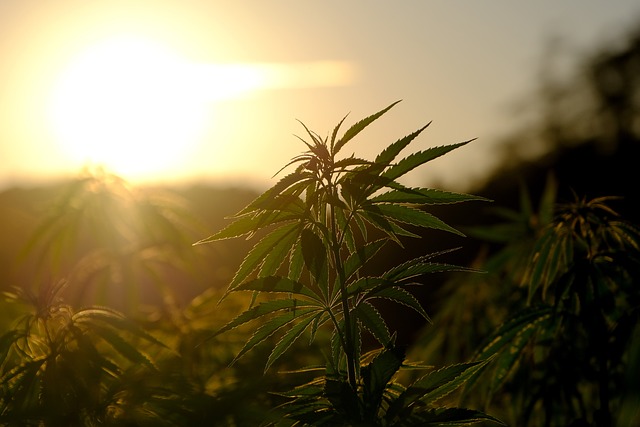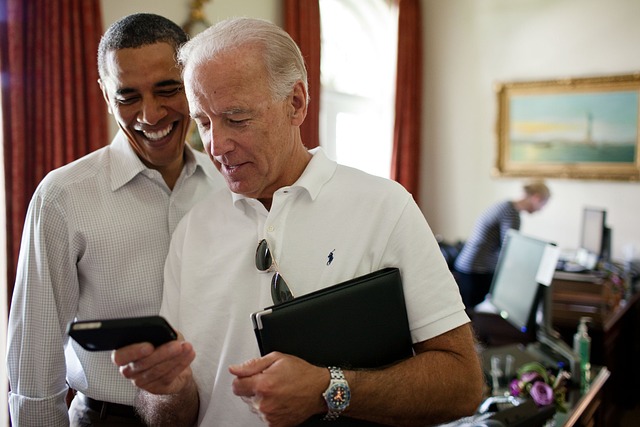While federal legalization of cannabis continues to languish in the halls of Congress, the Biden administration is being proactive on the issue. On Oct. 6, 2022, President Joe Biden announced he will pardon all federal offenses of simple cannabis possession and called for rescheduling the drug.
Cannabis is currently a Schedule I narcotic under the Controlled Substances Act of 1970. According to the CSA, Schedule I drugs have “no currently accepted medical use and a high potential for abuse.” This classification impacts the legality of possessing the substance and limits medical and scientific research.

“This is the same schedule as for heroin and LSD, and even higher than the classification of fentanyl and methamphetamine — the drugs that are driving our overdose epidemic,” Biden noted.
All Marijuana Laws Are Not Created Equal
While the announcement falls short of full decriminalization, it will change the lives of thousands of Americans currently incarcerated for cannabis possession.
“No one should be in jail because of marijuana,” Biden said during his presidential campaign. In a statement he added, “It’s time that we right these wrongs.”
More than 6,500 individuals have been convicted of or are being held on simple federal marijuana possession charges.
According to Nancy Whiteman, CEO of Wana Brands, a cannabis edibles company, Biden’s move to pardon those affected by federal possession charges “is an important step in full decriminalization and a meaningful way to begin to address the racial disparities around the arrests and convictions of BIPOC people.”
Columbia Care, an international cannabis operator, echoed Whiteman in a statement from Senior Vice President of Corporate Affairs Adam Goers.
“The President, by pardoning thousands of individuals who simply possessed cannabis, made an important and positive step,” Goers said.
“The process to reschedule the legal classification of cannabis is another step in the right direction. We hope the administration will swiftly enact these measures and fulfill the President’s other campaign promises that would normalize cannabis.”
In his statement, Biden acknowledged the disproportionate impact cannabis charges and convictions have had on BIPOC communities.
“Sending people to prison for possessing marijuana has upended too many lives and incarcerated people for conduct that many states no longer prohibit,” he said.
“Criminal records for marijuana possession have also imposed needless barriers to employment, housing, and educational opportunities. And while white and Black and brown people use marijuana at similar rates, Black and brown people have been arrested, prosecuted, and convicted at disproportionate rates.”
Building on a Foundation
The announcement is, in many ways, a continuation of the policy created by the Obama administration in 2013.
President Barack Obama helped to open the floodgates to state legalization during his second term when his administration announced it would not challenge laws legalizing cannabis in Colorado and Washington as long as those states maintain strict rules involving the sale and distribution of the drug.

In a memo to U.S. attorneys in all 50 states, Deputy Attorney General James M. Cole said the Justice Department is “committed to using its limited investigative and prosecutorial resources to address the most significant threats in the most effective, consistent, and rational way.”
The Biden administration is taking that sentiment further by calling for an end to simple possession charges and a review of the current scheduling of a drug that has proved to be an invaluable medicine to patients across the U.S.
Keeping in line with what former Deputy Attorney General Cole stated, however, pardons will not include those convicted of the sale or trafficking of cannabis.
If You Want Something Done Right, Do It Yourself
While Biden called on state governors to follow the precedent set by his administration, organizations in one state are leading the way to cannabis conviction expungement, independent of Biden or the federal government.
Amendment 3 is an initiative in Missouri to legalize and tax cannabis and would be the first piece of legislation to expunge cannabis arrest records.
GreenLight, a prominent cannabis company headquartered in Kansas City, Missouri, has been on the frontlines pushing for the initiative, bringing interested parties together into a formidable coalition.
“Specifically here in Missouri, we’re instrumental and really the entire industry got behind the initiative,” said GreenLight CEO John Mueller.
“We got the NAACP and NORML, and all the licensees. So, we’re really proud that we can bring a coalition, and nobody on the other side thinks they’ve got left out of the equation.
“Our statewide coalition of activists, business owners, medical marijuana patients, and criminal justice reform advocates has worked tirelessly to reach this point, and deserves all the credit,” said John Payne, campaign manager for Legal Missouri 2022, another group that pushed for the ballot question.
A Pardon is Not Legislation
The federal pardon will undoubtedly have a positive impact on the thousands of individuals currently being held on federal possession charges, but constitutional amendments like the one in Missouri could ultimately be more consequential.
Federal convictions pale in comparison to the number of state possession charges. While Medical cannabis use is legal in 39 states and the District of Columbia, and adult-use of cannabis is legal in D.C. and 19 states, there are still as many as 30,000 individuals incarcerated on the state level for marijuana charges.
Additionally, constitutional amendments are a more substantial hedge against future cannabis-related incarceration than a presidential pardon.
What the move by the Biden administration does do, however, is set a precedent and a mandate — at least to his democratic colleagues.
State governors and lawmakers will be under pressure to continue the momentum on legalization and expungement that the announcement created. Though, in 2023, the question must be asked: What took so long?
This article was first published in Volume 4 Issue 3 of Cannabis & Tech Today. Read the full issue here.






